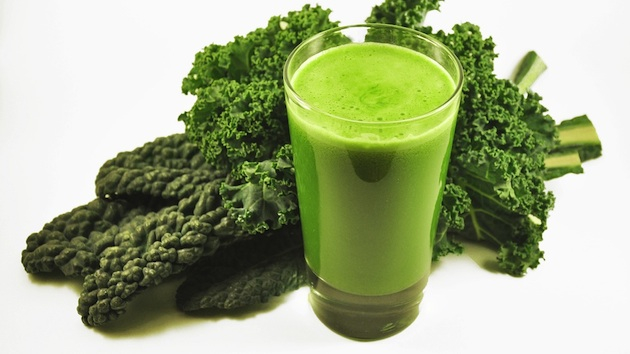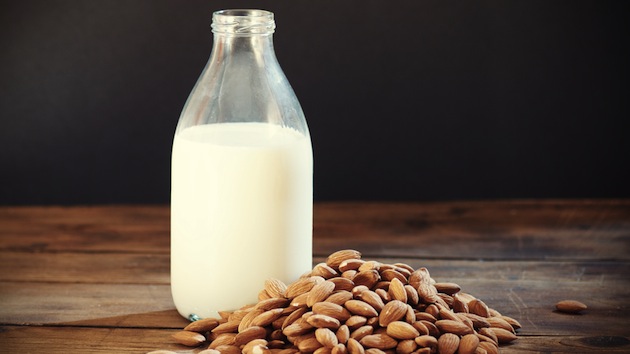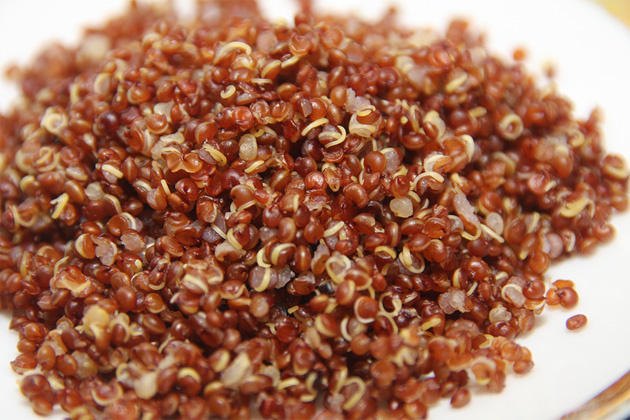
<a href="http://www.shutterstock.com/cat.mhtml?lang=en&language=en&ref_site=photo&search_source=search_form&version=llv1&anyorall=all&safesearch=1&use_local_boost=1&autocomplete_id=&searchterm=eating%20soup&show_color_wheel=1&orient=&commercial_ok=&media_type=images&search_cat=&searchtermx=&photographer_name=&people_gender=&people_age=&people_ethnicity=&people_number=&color=&page=1&inline=165782117" target="_blank">FCSCafeine</a>/Shutterstock
Another autumn, another slew of fawning stories about bone broth. According to Dr. Oz, adherents of the paleo diet, and the whole-milk-guzzling folks over at the Weston A. Price Foundation, the superfood du jour has a host of mystical powers. It can detoxify your liver, lubricate your stiff joints, patch up the holes in your gut, and erase your wrinkles, to name just a few of its supposed party tricks. Kobe Bryant claims drinking bone broth fixed his ruptured Achilles tendon.
All the more impressive when you consider how simple it is to make. Recipes vary, but most require simmering bones and veggies for at least eight hours on the stovetop. (Don’t confuse it with regular broth or stock, fans warn on the internet—those cook for only a few hours.) The result: a fragrant liquid that, if you do it right, will turn gelatinous when chilled, thanks to the collagen that leaches out of the bones.
Don’t have time to simmer? Don’t worry: The bone-broth-only New York City restaurant Brodo will sell you a 16-ounce serving for $6.75 to $9.00 (depending on the type of broth). A company called Bare Bones Broth will ship you six cups in vacuum packs for $29.99.
Yikes! Could the broth really be worth such prices—and such hype? Partly out of curiosity, but mostly because I’m tired of listening to people gush about bone broth, I asked scientists and nutrition experts to evaluate some of the most common claims.
Claim #1: Science has shown that bone broth is good for you. False. There’s been very little actual research into bone broth’s nutritional benefits. Kamal Patel, director of Examine, a scientific group that investigates nutritional claims about food and supplements, says the only actual study of bone broth he’s found is this one—from 1934. What’s more, says nutritionist Andy Bellatti, “There are so many different ways to do it that it’s hard to make claims about bone broth in general.” The nutritional value depends on many variables, including the kind and amount of bones, the length of time it simmers, and the other ingredients.
Claim #2: The collagen in bone broth is good for your joints. Unlikely. Bone broth does contain collagen, a protein that contains amino acids essential for rebuilding bone, connective tissue, and skin. But just because you consume collagen doesn’t mean that your body will use it to build bones. Through digestion, Patel explains, your body will break down the collagen and use its amino acids wherever they are needed. Furthermore, most of the health claims made about collagen in bone broth rely on studies of individual nutrients in supplement form. For example: The website Paleoleap claims that for patients with rheumatoid arthritis, chicken collagen bone broth could “help stop the autoimmune response in its tracks.” But the study the piece links to as proof isn’t about bone broth at all—rather, it’s about patients who were given pills containing pure chicken collagen for three months straight. “You’d have to eat a whole lot of bone broth to get as much collagen as is in supplements,” says Patel.
Claim #3: The glutamine in bone broth can cure your “leaky gut.” Who knows. I’ll explain why in a second, but first, some definitions: Glutamine is an amino acid, one of the building blocks the body uses to build proteins. In theory, leaky gut is a syndrome in which tiny holes in your intestinal lining allow food and other substances to leak, causing your body to mount an immune response that can lead to a variety of conditions, from irritable bowel syndrome to lupus. No one has proven that leaky gut syndrome actually exists, let alone that it causes the health problems some people (such as Dr. Oz) claim it does. None of the experts I talked to were aware of any study showing that glutamine has any effect whatsoever on the human intestinal tract. Most of the studies on glutamine and the gut that bone broth proponents cite were conducted on animals (for example, this one on malnourished rats, and this one on rats with colitis and pacreatitis).
Claim #4: Drinking bone broth will make you look younger. False. “You can find collagen in all kinds of ‘plumping’ products these days, but why stick it on the outside when you can drink it?” gushes Shape magazine. “Not only is drinking it cheaper, but it can make your skin, hair, and nails look just as radiant.” It’s true that some cosmetics that claim to reduce wrinkles contain collagen—there’s even some research showing that collagen supplements may reduce the appearance of wrinkles. But again, supplements deliver way more collagen than broth does. What’s more, Patel says, the collagen in supplements is hydrolyzed, meaning that it’s broken down with heat, acids, and enzymes so your body can process it more efficiently. Collagen in bone broth isn’t hydrolyzed.
Claim #5: Bone broth is a natural way to “detox your liver.” Probably not. Bone-broth promoters often claim that the amino acid glycine—also present in collagen—helps liver rid the body of toxins. But science hasn’t yet proven that anything that we eat or drink can make the liver more efficient, much less glycine alone. A few studies (such as this one) show that the livers of alcoholic rats recovered faster when the animals were fed glycine supplements, but again that’s supplements, not broth—and rats, not humans. “The only thing that bone broth does to ‘detoxify’ is that it’s a source of fluid,” says Doug Kalman, a professor of sports nutrition at Florida International University. “This is not detoxification. This is normal hydration.”
Claim #6: Bone broth can cure a cold. Maybe! Again, there are no studies on bone broth specifically, but some older research shows that chicken stock can calm cold symptoms. This study from 2000 found that chicken soup stops white blood cells from migrating—the mechanism that causes some of the symptoms of upper respiratory tract infections. This 1978 study found that chicken soup was better than cold or hot water at moving nasal mucous.
Claim #7: Bone broth is cheap to make regularly at home. Depends on your definition of “cheap.” Bone broth enthusiasts recommend sipping the stuff daily and claim that this practice is affordable. “If you utilize all the bones from the meat you eat, you’ll be getting them free,” says Paleoleap. But unless you’re, oh I don’t know, a lion, you probably don’t have enough bones to support a daily broth habit. This Epicurious recipe, which yields eight cups, calls for four pounds of beef bones, which usually run $3 to $5 a pound. Add a little more for the veggies, and you’re looking at around $2 to $3 a serving. Monthly, your bone broth fix would cost around $75.
Claim #8: Bone broth tastes good. Yeah, sure. It’s warm and comforting and pleasantly savory—plus it makes a great base for all kinds of soups and sauces. Which leads to another of Bellatti’s points: This stuff is by no means new—cultures around the world have been slow-simmering bones in liquid for a long time. “This is something that has been around for centuries that is now being repackaged as this bold new food,” he says. But “I get a little peeved when I see it described as a ‘healing food’—it just sets people up for high expectations.”
















